NEWS: Higher ed underfunded by billions, lottery audit says
COMMENTARY, Brack: Is S.C. ready for a political pig in a poke?
SPOTLIGHT: ACLU of South Carolina
MY TURN, Wentworth: Always remember to proofread and spellcheck
FEEDBACK: An A+ on the governor’s race
MYSTERY PHOTO: A log cabin?
S.C. ENCYCLOPEDIA: Peaches, our state fruit
NEWS
NEWS: Higher ed underfunded by billions, lottery audit says
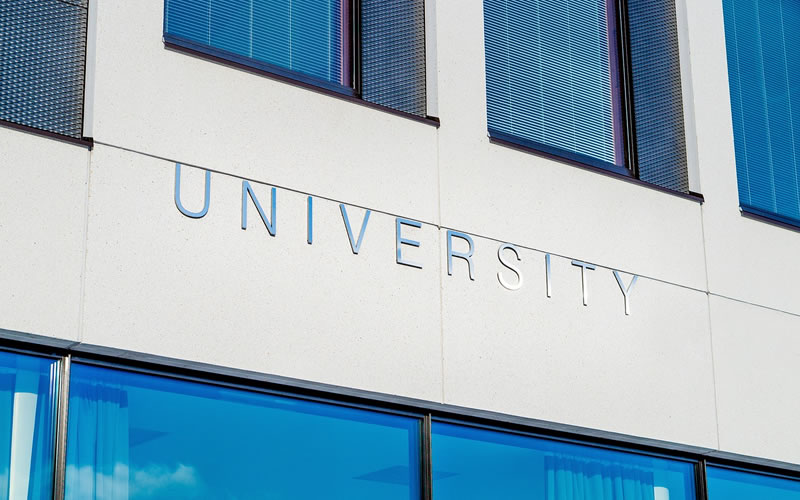
By Andy Brack, editor and publisher | A new independent state audit of South Carolina’s education lottery spending is a damning critique of the way the legislature appropriates education dollars.
Two glaring rebukes stand out in the June report, “South Carolina’s Use of Education Lottery Account Funds,” by the Legislative Audit Council:
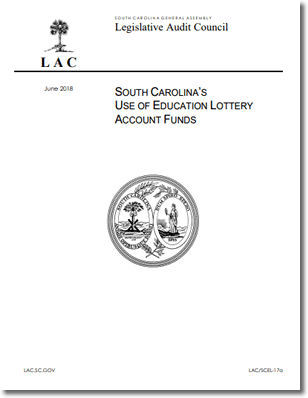
Underfunding. Higher education, specifically, has been underfunded $4 billion over 17 years since the education lottery was created. Essentially as the lottery started generating revenue for scholarships and other spending, the state reduced the amount of higher education funding from general tax revenues to levels below what was required by state law. As a result, even though there’s been more spending for scholarships, college tuition has gone up dramatically to make up for general fund reductions.
Education funding murkiness. State lawmakers appropriated $504 million in lottery funds over 14 years to education programs not specified by state law. The spending was made, though, because of inconsistencies with state law defining use of lottery monies. Only $3 million in appropriations for gambling addiction services was identified as potentially unconstitutional.
Since the lottery began in 2002, state lawmakers have appropriated $5 billion in lottery funds to education and other programs. In the 2017 budget year alone, the lottery generated $1.6 billion in ticket sales.
One Statehouse policy insider was pretty blunt about the audit report: “It is at least a pretty damning report coming from an independent non-partisan state agency,” the source said.
“The lottery has been used as a way to cut direct funding to public colleges which supports 100 percent of all in-state students while letting us ‘look like’ we are still funding colleges by providing ‘merit scholarships’ that go to less than one-third of all students at both public and private colleges.”
More on underfunding higher education
The audit says state law is unclear in some ways about how to fund elementary, secondary and higher education. But to get a handle on what’s happening, the former state Budget and Control Board determined from the state’s 2001 appropriations law that 56.71 percent of general fund tax dollars must go to education programs to comply with state law.
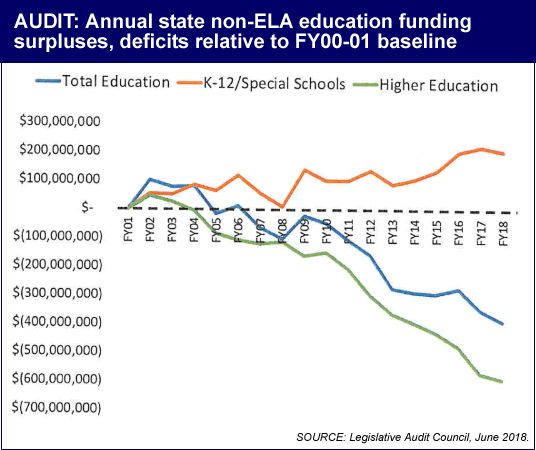
“We found that state non-Education Lottery Act (ELA} appropriations for education have frequently fallen short of the level required by statute,” the audit said. “Education appropriations have experienced a cumulative deficit of approximately $2.1 billion since FY 00-01. However, the General Assembly is not legally bound by the requirements in the Education Lottery Act because it has the authority to modify or disregard its prior actions.”
And it has, according to the audit.
Since the 2000-01 budget, the General Assembly has met the 56.71 percent funding level only four years, the report said. But funding between K-12 education and higher education has been dramatically different.
“[Since 2000-01| higher education has contributed approximately $4 billion to the cumulative education deficit, while K-12 education and special schools offset that amount with an approximately $1.9 billion cumulative surplus. In total, we estimate that, relative to the level required by state law, there has been a cumulative state non-ELA education funding deficit of approximately $2.1 billion since FY 00-01.”
The cut in higher education support from general tax revenues has had a dramatic impact, according to one university insider.
“Had state support for higher education continued at late-1990s levels, it seems likely that today we’d be talking about S.C. having some of the very lowest tuitions in the nation. As everyone knows, that’s not what happened, and perhaps there is no universe in which that could have happened.
“But, it is clear that while funding for some aspects of education have rebounded from the cuts enforced by the Great Recession, that hasn’t happened with higher ed. And that has forced a dramatic shift in the funding model.”
On education funding murkiness
The lottery audit also had some harsh words for lottery spending by the legislature, which has appropriated about $5 billion of lottery funds starting in 2002. About 80 percent of funding went to higher education, much of it in the form of scholarships, grants and tuition assistance, while 20 percent went to K-12 and other programs.
The audit notes the way that Education Lottery Act says to spend proceeds isn’t consistent with other state laws. The act says lottery funds can only be spent on specific programs, but the General Assembly has spent an estimated $504 million on “programs and purposes not clearly specified by statue.” Some examples:
- Public higher education technology investments: $164 million;
- K-12 Technology Initiative: $87.9 million;
- “Other” designated programs at the state Department of Education: $64.1 million;
- “Unrestricted” at S.C. State University: $44 million;
- Academic buildings, repair, maintenance and training: $42.6 million;
- Allied Health Initiative at the state Board for Technical and Comprehensive Education (BTCE): $23.2 million;
- Workforce scholarships and grants at BTCE: $18 million. For more, see Table 2.5 in the report.
The report doesn’t say it was wrong for legislators to appropriate money as they did. It notes that the uses weren’t clearly specified by state statute. The audit also noted:
- Funds from unclaimed lottery prizes are supposed to be used for compulsive gambling programs or to buy school buses, but the monies weren’t used for those purposes for several years.
- Nearly $3 million was spent for gambling addiction services, which was potentially unconstitutional.
Audit recommendations
The audit made several recommendations to the General Assembly. Of note:
- The General Assembly should act consistently with state law when appropriating lottery funds.
- It should stop spending lottery money for gambling addiction services and amend state law to deal with the services.
- It should establish a minimum percentage of general tax funds for education.
- It should clarify how it calculates education funding.
- It should amend state law to require periodic compliance reports.
To read the audit, click here.
- Have a comment? Send to: feedback@statehousereport.com
BRACK: Is S.C. ready for a political pig in a poke?
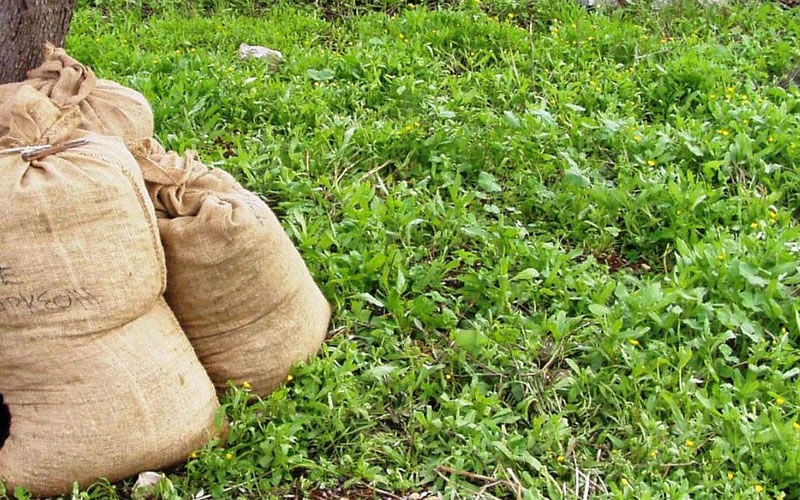
By Andy Brack, editor and publisher | More than 100,000 South Carolinians may have bought a pig in a poke in the recent GOP primary. They voted for Greenville businessman John Warren, a political neophyte who joined the state’s gubernatorial race just a few months back and who reportedly has pumped $3 million of his own money into winning.
 He is, if you didn’t know, a Marine. That’s about all we really know about him, as he repeatedly says in television ads.
He is, if you didn’t know, a Marine. That’s about all we really know about him, as he repeatedly says in television ads.
The term “pig in a poke” is an English idiom from the Middle Ages, a time when meat often was scarce. Tricksters would offer suckling pig in a closed bag to customers. Many times, however, the bag contained the meat of some other animal.
Warren obviously has the required skills to run a successful financial services business, coincidently named after his Marine unit. It remains to be seen whether those skills are enough to navigate as governor in a state paralyzed by challenges for education, health care and infrastructure.
Warren, who will face Gov. Henry McMaster in a June 26 runoff, offers a big obstacle to McMaster’s desire to win a gubernatorial election outright. He took the office, you may remember, after former Gov. Nikki Haley resigned to become an ambassador in the Trump administration.

While McMaster shines when reminding voters he has Trump’s endorsement as much as Warren plays the Marine card, GOP voters these days may be more willing to give the new guy a chance than to cast their lot with someone who has been around for a long time. Just look to Trump’s election and the deflation of the old-time Republican Party into the Trumpian Party to understand that.
“Trump has a tremendous impact on South Carolina Republican primary politics,” said College of Charleston political scientist Gibbs Knotts. “Loyalty to Trump has become one of the most important litmus tests for Republican primary voters.”
So McMaster, the first statewide official to endorse Trump when he was running for president, has that going for him. He benefited over the last year in raising lots of money and building a machine in what Knotts calls the “invisible primary.” Knotts said he expected McMaster, who won more than 155,000 votes in the primary, to win the runoff over the inexperienced Warren.
But Brad Warthen, former editorial page editor of The State newspaper in Columbia, isn’t so sure. An incumbent governor – even one who has been in office for a year and a half – should be stronger. For months, McMaster was pounded by four challengers.
“Telling everybody he [Trump] is your best buddy isn’t a sure road to success,” Warthen told Statehouse Report. “McMaster is in a remarkably weak position for an incumbent….”

“Everybody seems to be ganging up on him at this point. McMaster’s problems are his association with the Quinns [who are involved in a corruption case], his old-school image, the fact that he wasn’t elected to the position, and the possibility that at some point his slavish devotion to Trump — at times, the relationship seems to be all he can say about himself — could become an albatross for him.”
Two days after the primary was over, Warren picked up endorsements from two other anti-establishment Republicans who wanted to be governor – Lt. Gov. Kevin Bryant of Anderson and Catherine Templeton of Mount Pleasant.
But is their support enough to carry Warren over the top? Probably not.
McMaster came out on top in 40 of 46 counties, including voter-rich Richland, Lexington, Charleston, York and Horry counties. McMaster edged Warren in Spartanburg County. Templeton garnered more votes than McMaster in three small counties and Beaufort County. Bryant mostly was in single digits, except in his home county where he nailed 22 percent of the vote. Warren came out on top in two counties – narrowly in Pickens, but by a large margin in Greenville.
As they say in politics, everything in elections is about turnout. McMaster has the benefit on June 26 of a strong relationship with the president and a campaign organization in the work for months, if not years. Warren has the aura of a newbie, but many may be growing tired of how he trumpets his military service for personal gain.
- Have a comment? Send to: feedback@statehousereport.com.
SPOTLIGHT
SPOTLIGHT: ACLU of South Carolina
 The public spiritedness of our underwriters allows us to bring Statehouse Report to you at no cost. This week’s spotlighted underwriter is the American Civil Liberties Union. The ACLU of South Carolina is dedicated to preserving the civil liberties enshrined in the U.S. Constitution and Bill of Rights. Through communications, lobbying and litigation, the ACLU of South Carolina works to preserve and enhance the rights of all citizens of South Carolina. Foremost among these rights are freedom of speech and religion, the right to equal treatment under law, and the right to privacy.
The public spiritedness of our underwriters allows us to bring Statehouse Report to you at no cost. This week’s spotlighted underwriter is the American Civil Liberties Union. The ACLU of South Carolina is dedicated to preserving the civil liberties enshrined in the U.S. Constitution and Bill of Rights. Through communications, lobbying and litigation, the ACLU of South Carolina works to preserve and enhance the rights of all citizens of South Carolina. Foremost among these rights are freedom of speech and religion, the right to equal treatment under law, and the right to privacy.
MY TURN, Wentworth: Always remember to proofread and spellcheck

Editor’s note: The following is an excerpt of a speech given by S.C. Poet Laureate Marjory Wentworth at the May 27 graduation for Palmetto Scholars Academy in North Charleston. We thought you’d enjoy it.
By Marjory Wentworth, special to Statehouse Report | I am a poet, so you might think I’m going to talk about the knowledge that poetry can bring to the world and the inherent joys of being a writer, but I am speaking to you today from a different platform – as a mother whose three sons finished college not that long ago and as a professor who has taught college for many years. I have learned and continue to learn a great deal from my students, and I want to share some of this hard-earned knowledge with you.

Since I am a writer, I teach writing classes, as well as literature and public speaking. My students have to write a lot of essays; you too will have to write many essays at college. So, the title of my speech today is, Always Remember to Proofread and Spellcheck. These words may be familiar to you, but what does this have to do with you as you head off to college? More than you might think.
I have a policy in all my classes — that I will not grade a paper that has not been spellchecked or proofread. If a student can’t bother with that, then they certainly haven’t put much effort into their work. I tell my students to proofread everything they write – even social media posts and emails. Think about it – If you’re applying for a job or an internship and your email cover letter is filled with errors, what is the potential employer going to think? They’re going to think that you are stupid or lazy or both. Either way, they are not going to hire you.
But I really want to talk to you today about the larger meaning of putting care into your work and how this approach will help you with everything else you do in college and beyond, because the more effort you put into it the more you will get out of the entire experience. If you give 100 percent then you will be at peace with yourself and your outcomes. If, however, you don’t do your work and skip classes and stay out partying too much, you may find yourself with failing grades, you will have no one to blame but yourself.
Checking for spelling and grammar errors means that you assume you made some mistakes or that you missed something; it assumes that your paper isn’t perfect. Guess what, neither are you and that’s OK. Checking for errors means that you are being honest with yourself and taking responsibility for your actions. This requires a kind of mature self-awareness that many people lack. Keep that in mind when you do mess up, and believe me, you will mess up- Own your mistakes and rectify them when you can. Don’t blame others for your problems, unless you have been genuinely wronged. And when you can’t solve a problem – whether it’s something huge or small ASK FOR HELP.
Part of becoming an adult is realizing that it’s okay to ask for help. Your parents and teachers are there for you. We’re not psychic, so don’t assume that we know what’s going on with you. Also, please don’t be too hard on yourself. Everyone is broken. Everyone is trying to figure it out. You are not alone. You are never alone, and when you feel lonely reach out to someone you love. That’s why we have cell phones!
If there are things you want to change about yourself, now is the time. You need a lot of energy to experience college in the most productive way, so take good care of yourselves. It’s a chance to create new habits – eat healthier, take up running or another sport, learn to mediate or take a yoga class. Learn to play an instrument. Find something that has interested you, but something that wasn’t possible for you to do in high school. This is a chance for you to discover yourself and be the best that you can be. Before you know it, you’ll have jobs and families and very little opportunity to try new things; college is your time to figure out what YOU need to be successful and happy.
Your time at college is also a good time to figure out bigger problem-solving skills. Ask yourself, what is your moral compass? Things will happen to you that will test your beliefs. Sometimes people will let you down. You might experience tragedy – through no fault of your own. And you have to have some way to make sense of it. So, no matter what your background, I recommend that you have some sort of spiritual practice, some way of making sense of the world. Be prepared. Take the time to make sure your soul is OK.
The subject of the soul is the poet’s territory, but life teaches you that if your heart and soul are damaged or your moral compass is off, you will suffer more than you need to. Take care of it now. This is a different kind of learning, but sometimes it’s the one most neglected yet it may be the most important. Again, check yourself – take good care of yourself and the rest will follow.
- Have a comment? Send it to: feedback@statehousereport.com.
FEEDBACK
FEEDBACK: A+ on the governor’s race
![]() To the editor:
To the editor:
[On the June 8 commentary about the governor’s race]: You get a score of 100.
— Jack Bass, Charleston, S.C.
Send us your thoughts. We love hearing from our readers and encourage you to share your opinions. But you’ve got to provide us with contact information so we can verify your letters. Letters to the editor are published weekly. We reserve the right to edit for length and clarity. Comments are limited to 250 words or less. Please include your name and contact information.
- Send your letters or comments to: feedback@statehousereport.com
MYSTERY PHOTO
MYSTERY PHOTO: A log cabin?

You’ll find this building in one of South Carolina’s small towns. But where – and what – is it? Send your best guess – plus your name and hometown – to feedback@statehousereport.com. In the subject line, write: “Mystery Photo guess.” (If you don’t include your contact information, we can’t give you credit!)
Our previous Mystery Photo
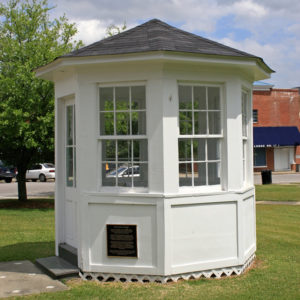 The June 8 mystery, a photo by Bill Segars of Hartsville, showed an old guard house and police station in Barnwell, S.C.
The June 8 mystery, a photo by Bill Segars of Hartsville, showed an old guard house and police station in Barnwell, S.C.
This was tougher than recent photos as only three alert readers identified it: Dale Rhodes, Richmond, Va.; George Graf, Palmyra, Va.; and Jay Altman of Columbia. Congratulations.
Graf offered some context: “The former police station now belongs to the Barnwell Museum and is located in the town circle. It was built as the guard house at the nearby POW Camp in 1944 then moved to the town circle after the camp was torn down. It then service as a police station for a time.”
Send us a mystery: If you have a photo that you believe will stump readers, send it along (but make sure to tell us what it is because it may stump us too!) Send to: feedback@statehousereport.com and mark it as a photo submission. Thanks.
S.C. ENCYCLOPEDIA
HISTORY: Peaches, our state fruit

S.C. Encyclopedia | The peach (Prunus persica, Rosaceae) is a temperate-zone stone fruit that is grown widely around the world. Peaches originated in China, where they have been cultivated for thousands of years. From China, peaches migrated to ancient Persia and then to Europe. In the 1600s the Spaniards introduced peaches to North America. By the early 1700s there were several prominent accounts of peach cultivation in South Carolina. The native Indians cultivated peaches and preserved them by drying and pressing them into cakes. Henry William Ravenel of Aiken is credited as the first commercial grower to ship peaches outside the state in the 1850s.
At the start of the twenty-first century, peaches were the most widely grown commercial fruit crop in South Carolina, comprising more than seventeen thousand acres in the state and with an estimated annual farm value of between $30 million and $40 million. Peaches have been grown in three primary regions proceeding from the mountains to the coast: the Piedmont, “The Ridge” region between Columbia and Augusta, and the coastal plains. South Carolina ranks as the number-two peach producer in the United States, after California. In 1984 the peach was designated by the General Assembly as the state fruit of South Carolina.
More than forty commercial varieties of peaches are grown in South Carolina. In a normal year more than two hundred million pounds of peaches are harvested in the state. The peach harvest season begins in early May and ends in late September. The vast majority of the commercially grown South Carolina peaches are destined for fresh markets up the eastern seaboard of the United States. Local roadside markets are the second major outlet for fresh peaches. Some peaches are grown specifically for processing into baby food and other value-added processed products.
Most peach trees in South Carolina’s commercial orchards actually begin in Tennessee nurseries. First a seedling rootstock is grown, and then a desirable fruiting cultivar is grafted onto that seedling. Trees are then dug bare-root and shipped to South Carolina for planting during the winter. Peach trees begin bearing fruit during their third year after planting, and peach orchards will remain in production for roughly fifteen years. A mature tree that is well cared for can produce up to eight bushels of fruit and may use up to forty gallons of water per day near harvest.
Peach cultivation in South Carolina can be very profitable, but several factors may negatively impact year-to-year profitability. Some of these include adverse environmental conditions (warm winters, spring freezes, hail, drought), pests and disease (peach tree short life, oak root rot disease), and economic factors (labor costs, urban encroachment). To diminish the impact of some of these factors, growers are utilizing newer technologies such as microsprinkler irrigation, integrated pest management, wind machines, and resistant rootstocks. In addition, they are constantly planting newer, high-quality varieties to expand their marketing opportunities.
— Excerpted from an entry by Desmond R. Layne. To read more about this or 2,000 other entries about South Carolina, check out The South Carolina Encyclopedia, published in 2006 by USC Press. (Information used by permission.)
ABOUT STATEHOUSE REPORT
Statehouse Report, founded in 2001 as a weekly legislative forecast that informs readers about what is going to happen in South Carolina politics and policy, is provided to you at no charge every Friday.
- Editor and publisher: Andy Brack, 843.670.3996
- Statehouse correspondent: Lindsay Street
More
- Mailing address: Send inquiries by mail to: P.O. Box 22261, Charleston, SC 29407
- Subscriptions are free: Click to subscribe.
- We hope you’ll keep receiving the great news and information from Statehouse Report, but if you need to unsubscribe, go to the bottom of the weekly email issue and follow the instructions.
© 2018, Statehouse Report. All rights reserved.















 We Can Do Better, South Carolina!
We Can Do Better, South Carolina!
So, Andy, no commentary on Katie Arrington’s upset win over Mark Sanford? That is the BIG story of primary day (though, granted, Gov McMaster garnering only 42% of the vote does come in a close second and there is a runoff election within a few days). After 3 elections and 5 years, the 1st Congressional District finally has gotten it right. While some may be concerned about the reported role President Trump played in this upset win, I’m not exercised by it at all . Katie’s my state legislator and in only one term in the state House she has earned a reputation as a savvy and hard worker focused on doing the people’s work. Despite how much the media and both parties will play this up as a national story, the way I see it, the 1st district is now on the path to replace a conservative obstructionist with a conservative who will get things done. Tuesday night was a great night for the 1st Congressional district.
Bob,
Yes, the Sanford upset certainly was interesting. But Statehouse Report tends to focus on state politics, not federal politics. That being said, the result didn’t flabbergast….Sanford seemed to be only going through the campaign motions, relying on his aura of not losing an election ever. Had he shown some fire in the belly, more people would have voted for him and he probably wouldn’t have lost. Katie Arrington is a typical Trumpian … nothing special other than being in the right place at the right time. She had one good ad (“It’s time to end the Mark Sanford era.) Once sworn in, watch to see if she has the independence to represent the Lowcountry or becomes a lapdog of the power brokers in the GOP.
— Andy Brack